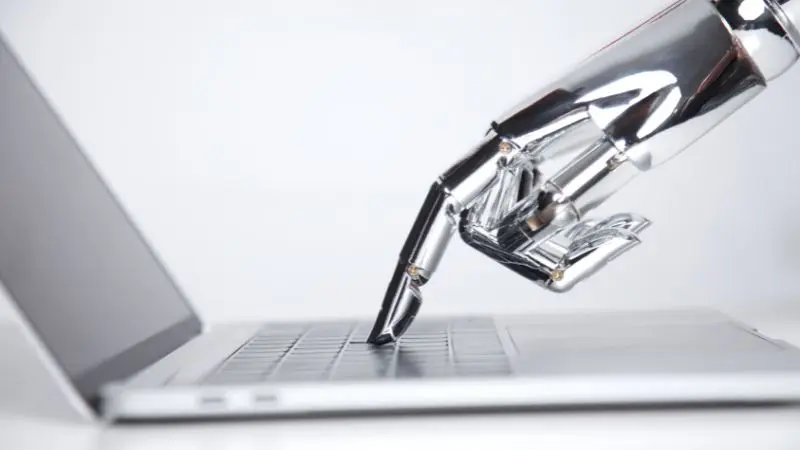
Tech
Tech


Rio de Janeiro has once again become the global center of innovation by hosting the Web Summit Rio 2025. Held between April 27 and 30 at Riocentro, the event brought together more than 34,000 participants, including entrepreneurs, investors, executives from large companies and technology enthusiasts. As a result, it has established itself as the world's leading technology conference on South American soil.
THE Web Summit Rio 2025 reflected not only the dynamism of the Brazilian ecosystem, but also the growing relevance of Latin America in the global innovation scenario. More than a conference, the event was a showcase of the future: a space to understand the directions of technology, its impacts on business, careers and society.

Priscilla Jacovani, Victor Odo and Felipe Marcos partners of follow55 at Web Summit Rio 2025
The participation of follow55 It was more than just institutional. Working with technology requires constant updating, and being present at events like this is a must for those who are passionate about innovation and believe in the power of technology to transform businesses. We closely followed the most relevant lectures and exchanges, absorbing insights that reinforce our purpose.
Next, we share 10 lessons and trends that marked our experience at the event:
Digital transformation is no longer a choice, it is a necessity. This was the tone of several lectures at the Web Summit Rio 2025. Executives of SAP and of the Nature highlighted that the ability to adapt, speed in decision-making and a culture of innovation are the new standard for companies that want to grow.
The central message was clear: Even small and medium-sized companies can, and should, adopt more agile processes, digitize internal flows and use data intelligently. Transformation doesn’t need to start with big investments, but with an open mindset to eliminate what doesn’t work and test what can generate impact.
Innovation, according to panels led by representatives from Ambev Tech and iFood, is increasingly linked to constant experimentation, rather than to closed and long projects. The companies that learn the fastest are the ones that win.
Accenture data revealed that companies with advanced digital maturity grow up to 5 times faster than the others. Furthermore, 65% of organizations that have implemented integrated digital strategies reported direct revenue growth of up to double digits.
Another recurring point in the panels was the concept of “adaptive company”, organizations that build operational models capable of changing in short cycles, continuously.
In short, innovation today means integrating people, data and technology in a strategic and fluid way. The scenario will be for those who transform with focus and consistency.
The convergence between Artificial Intelligence (AI) and experience design was one of the central themes of the event's strategic discussions. The talk “AI & UX: Designing for the New Era”, presented by Karina Tronkos, showed how AI can be an ally of creativity and empathy.
Behavioral analysis tools, real-time personalization, and AI-powered prototyping are changing the way designers work. The discussion went beyond efficiency: it was about how to create interfaces that are more human, responsive, and connected to the user’s emotions.
Additionally, executives from Adobe and Figma They brought cases about responsive design with generative AI, and how creative teams are saving time with automations to dedicate themselves to real innovation.
A relevant fact presented by Adobe is that Designers who use AI in creative workflows save an average of 37% of time on operational tasks. Figma highlighted that projects with AI-assisted usability testing saw a 26% increase in conversion rate for digital products.
THE AI was the cross-cutting theme of Web Summit 2025. It was present on practically every stage, from discussions on automation and productivity to ethical and governance dilemmas.
Priscyla Laham, president of Microsoft Brazil, said in her lecture: “Professionals will not be replaced by AI, but by other professionals who know how to use it intelligently.” Márcio Aguiar, director of Nvidia, reinforced that we are only at the beginning of the inflection point of AI, and that we still have a lot to learn. (And we totally agree with that!)
The panels highlighted how AI is enhancing human creativity, accelerating workflows, and offering new opportunities for professionals in all areas. The concept of “copilot” has established itself as a model for collaboration between humans and machines.
According to a survey by McKinsey, 70% of companies that adopted generative AI in the last 12 months reported significant gains in productivity. And more: 28% of them have already managed to reduce operational costs at scale with AI-based automation.
In addition to the buzz around generative AI, a less popular but equally important topic dominated the backstage of the event: deep techs. Companies such as Imaginable Futures, BNDES and Endeavor highlighted how Brazil can lead innovations in areas such as energy, biotechnology, quantum computing and new materials.
Panels led by universities and investors showed that there is a global effort to bring science and the market closer together. The speech by Hugo Rocha, from UFRJ, summarized the spirit of the debate:
“It’s not enough to be disruptive, you have to be relevant to society.”
For many, investing in deep tech is the next cycle of impactful innovation. The challenge? Fostering public policies and bridges between academia, funds and companies.
The growth of AI has raised concerns about ethics, privacy and regulation. Several panels took the topic seriously, and the need for clear frameworks was a constant.
Justina Nixon-Saintil, IBM’s chief impact officer, was categorical: “We cannot push responsibility onto machines. It is humans who make decisions and must be held accountable for them.”
Discussions ranged from algorithmic bias to the need for auditable AI, with a focus on transparency, explainability and data protection. The overall conclusion was: companies that position themselves responsibly will have a lasting competitive advantage.
Much has been said about how AI is eliminating operational tasks and opening up space for creativity. But Web Summit Rio 2025 went further: it showed how the tools are expanding teams' creative capacity.
Companies like Canva, Adobe, and Runway showcased how design and content teams are using AI to generate versions, test campaigns, build prototypes, and even scripts. One panel on design was spot on: “AI is not a shortcut to creativity. It is a lever.”
This fusion between human and machine is shaping a new generation of creative professionals, more strategic and faster.
Influence has become community. That was the main message from the social media panels. Expert creators, micro-influencers and brands that build real conversations dominated the program.
Rodrigo Dantas' lecture (RD Station) highlighted that the social media game has changed: “Those who build dialogue win. Those who just push content lose relevance.”
The focus is now on useful content, native formats, and consistency of engagement. Platforms like TikTok, LinkedIn, and YouTube were cited as essential, but the difference lies in what is delivered, not where it is posted.
During the event, the TikTok announced the launch of the feature Search Ads in Brazil, allowing brands and creators to promote their videos directly in the platform’s search results. This new feature reinforces TikTok as a discovery and advertising tool, transforming search on the platform into an advertising conversion environment.
With the advancement of AI, content has become more accessible and more saturated. Experts from Google and SemRush discussed how SEO has evolved beyond keywords.
Today, the focus is on search intent, that is, understanding what the user really wants to find when typing a keyword. Also highlighted was the user experience, such as dwell time, complete reading and interactions with the page. Finally, the digital authority began to be measured by backlinks, engagement and the reliability of the content.
In this scenario, the concept of EEAT – Expertise, Experience, Authority, Trustworthiness (expertise, experience, authority and trustworthiness) has become one of the most relevant criteria for ranking. This means that, to be visible on Google, content needs to be produced by reliable sources, with experience in the subject, demonstrating authority and delivering real value to the reader.
This shift pushes brands to prioritize quality over volume and invest in useful, in-depth and authentic content.
Additionally, the impact of interactive content, short videos, and even AI-powered responses on search engines has created a need for more human, useful, and in-depth content strategies.
THE Nvidia presented one of the most futuristic panels of the event when talking about autonomous AI agents. They are models capable of performing tasks independently, interacting with systems, making decisions and learning over time.
These agents, such as Microsoft’s copilots, ChatGPT with memory, and platforms like Groq, are being trained to act as digital assistants in marketing, service, logistics, and sales operations. More than bots or programmed flows, autonomous agents represent a new layer of intelligence that continuously learns and acts based on context.
Large companies are starting to develop custom agents, applied internally in tasks such as onboarding new employees, screening leads, real-time data analysis and even communication between departments. The panel with executives from Groq and Nvidia highlighted the importance of architectures with low response time, high security and integration with reliable data sources.
The impact is profound: fewer manual tasks, more strategic time. The warning was clear: whoever learns to work with these agents will be promoted. The future of operations depends on this invisible layer of automation with autonomy.
Amidst so much technology, what appeared most in executives' speeches was a human demand: clarity. Companies want solutions that solve, simplify and bring real impact.
Hype is no longer enough. The discourse that has enchanted in recent years now needs to be proven with ROI, efficiency and strategy. Companies want partners who translate innovation into results.
It became clear that the future will belong to brands that deliver consistently, have the courage to experiment and the humility to listen to the market.
More than just a technology showcase, Web Summit Rio 2025 was a space for in-depth exchanges about the present and future of innovation. What we saw there, in the talks, side conversations and at the booths, is that the world is less interested in empty promises and more concerned with real, practical and human applications of technology.
Artificial intelligence will continue to be a protagonist. But what really sets companies and professionals apart is the ability to interpret these changes with critical vision, ethics and strategic action.
In the follow55, we returned from the event with the certainty that our role goes beyond following trends: we want to be a bridge between ideas and impact. And it is with this vision that we continue moving forward!

Tech

Tech


Apps
Tech
Websites
